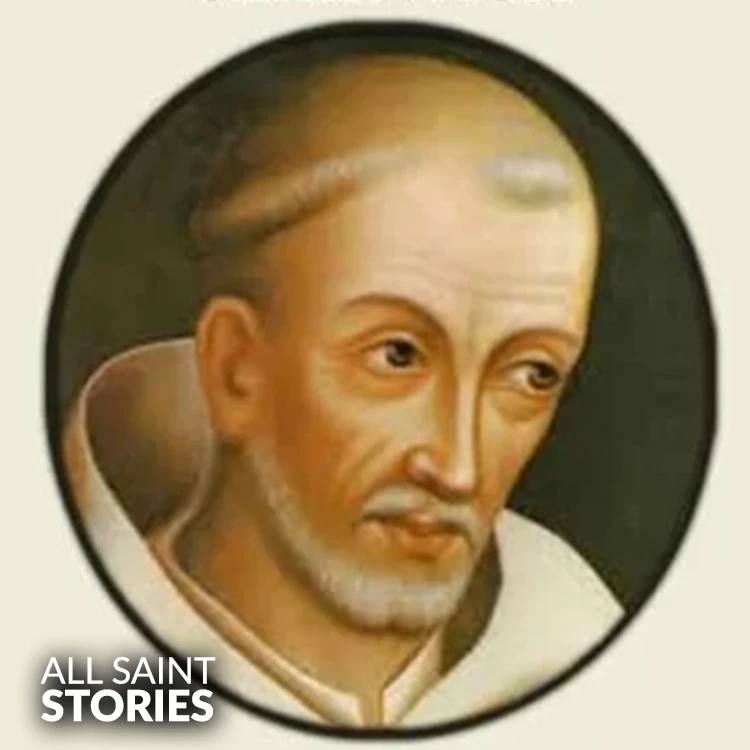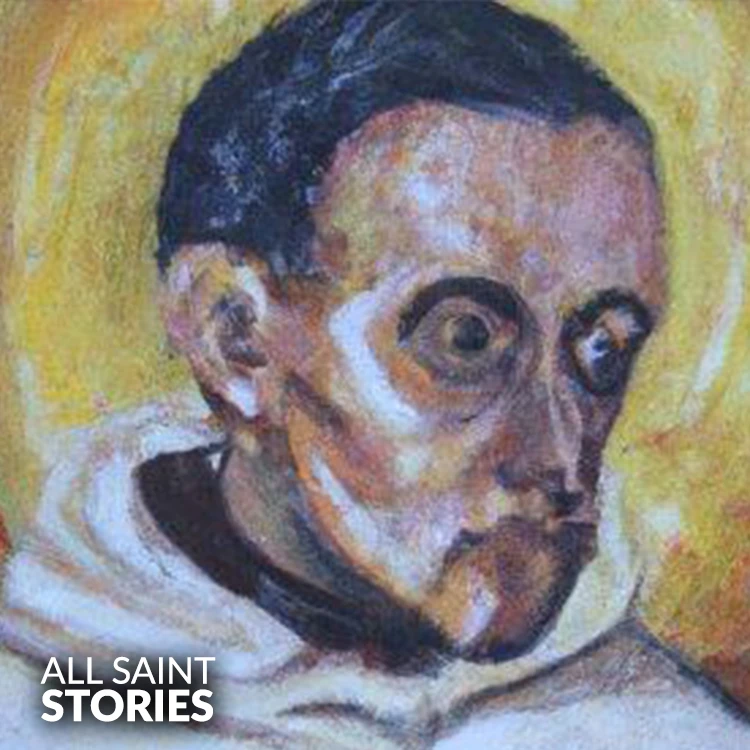"Saint Bernard of Clairvaux, You who were a faithful servant of God and a guide to many souls, Help us to grow in humility, faith, and love. Intercede for us, that we may follow Christ with your devotion and zeal, And may our hearts always seek the peace that comes from Him. Through your prayers, may we be granted wisdom and strength to face life's challenges. Amen."
ST. BERNARD OF CLAIRVAUX
ST. BERNARD OF CLAIRVAUX

St. Bernard of Clairvaux was a French abbot and one of the most influential figures of the 12th century. He was a reformer of the Cistercian Order, a great preacher, and a defender of the faith. His writings on theology and devotion to the Blessed Virgin Mary remain highly influential. Declared a Doctor of the Church, his feast day is celebrated on August 20.
St. Bernard of Clairvaux was born in 1090 in Fontaine-lès-Dijon, Burgundy, France, into a noble family. From an early age, he was drawn to a life of prayer and study. Gifted with intelligence and deep piety, he decided to dedicate his life to God rather than pursue a career in politics or military service, as was common for noblemen of his time.
At the age of 22, Bernard entered the Cistercian monastery of Cîteaux, which was known for its strict observance of monastic discipline. He did not go alone—he convinced around 30 of his relatives and friends to join him in embracing the monastic life. His zeal and influence helped revitalize the Cistercian Order, which had been struggling. His deep spirituality and strict adherence to the monastic rule quickly gained him recognition, and just a few years later, in 1115, he was sent to found a new monastery in Clairvaux, which became one of the most important monastic centers in Europe.
As abbot of Clairvaux, Bernard's reputation for holiness and wisdom spread rapidly. His spiritual guidance was sought by popes, kings, and clergy. He became a powerful preacher, attracting both admiration and controversy. His eloquence and theological insight helped define Church teachings during a period of internal disputes. He was a key figure in settling the schism between Pope Innocent II and Antipope Anacletus II, strongly defending the legitimate papacy.
Bernard played a major role in the Second Crusade (1147-1149), preaching fervently in favor of the mission. His call to arms inspired many to take up the cross, though the campaign ultimately failed. Despite this, his influence remained strong. He also fiercely opposed the teachings of Peter Abelard, a controversial theologian, and helped clarify the Church’s position on key theological matters.
St. Bernard was deeply devoted to the Blessed Virgin Mary. His writings on Marian devotion, especially his sermons on the "Song of Songs," are considered masterpieces of mystical theology. He emphasized Mary's role as the Mediatrix and encouraged devotion to her as a path to Christ. His famous prayer, the Memorare, is attributed to him, and he is often called the "Marian Doctor" for his contributions to Mariology.
Despite his powerful role in the Church, Bernard lived a life of humility and asceticism. He practiced extreme fasting and penance, which weakened his health over time. In his later years, he continued his work as a preacher and spiritual guide, despite suffering from constant illness. He passed away on August 20, 1153, at Clairvaux Abbey. His holiness was so widely recognized that he was canonized just 21 years later by Pope Alexander III in 1174. In 1830, Pope Pius VIII declared him a Doctor of the Church, recognizing his immense theological contributions.
St. Bernard’s legacy endures through his writings, which continue to inspire Christians seeking a deeper spiritual life. His emphasis on love for God, humility, and devotion to Mary remain pillars of Catholic spirituality.
Video Not Found
The information on this website is compiled from various trusted sources. While we aim for accuracy, some details may be incomplete or contain discrepancies.
If you notice any errors or have additional information about this saint, please use the form on the left to share your suggestions. Your input helps us improve and maintain reliable content for everyone.
All submissions are reviewed carefully, and your personal details will remain confidential. Thank you for contributing to the accuracy and value of this resource.
Credits & Acknowledgments
- Anudina Visudhar (Malayalam) – Life of Saints for Everyday
by Msgr. Thomas Moothedan, M.A., D.D. - Saint Companions for Each Day
by A. J. M. Mausolfe & J. K. Mausolfe - US Catholic (Faith in Real Life) – Informational articles
- Wikipedia – General reference content and images
- Anastpaul.com – Saint images and reflections
- Pravachaka Sabdam (Malayalam) – Saint-related content and insights
We sincerely thank these authors and platforms for their valuable contributions. If we have unintentionally missed any attribution, please notify us, and we will make the correction promptly.
If you have any suggestion about ST. BERNARD OF CLAIRVAUX
Your suggestion will help improve the information about this saint. Your details will not be disclosed anywhere.
© 2026 Copyright @ www.allsaintstories.com





 English
English
 Italian
Italian
 French
French
 Spanish
Spanish
 Malayalam
Malayalam
 Russian
Russian
 Korean
Korean
 Sinhala
Sinhala
 Japanese
Japanese
 Arabic
Arabic
 Portuguese
Portuguese
 Bantu
Bantu
 Greek
Greek
 German
German
 Dutch
Dutch
 Filipino
Filipino